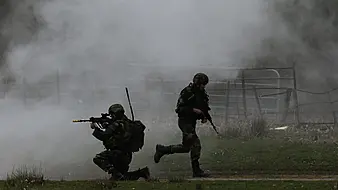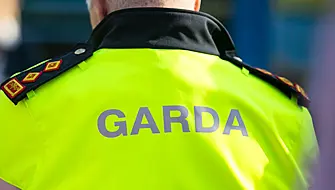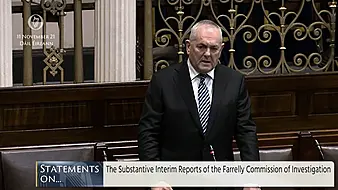Multi-departmental exercises have been carried out to test Ireland’s response to gas and internet blackouts with the aim of improving the country’s resilience.
The response to the hypothetical scenario of an island-wide internet blackout, called Operation Puca, is being reviewed and is to be presented to government.
The game-planning is part of Ireland’s efforts to improve its resilience and cooperation between government departments, state agencies and utilities.
An exercise into energy disruption in Ireland has been carried out by civil servants every year since around the time Russia invaded Ukraine in February 2022.
In December, a hypothetical scenario was played out where there was a major gas disruption.
The two gas interconnectors between Ireland and the UK were impacted in this scenario, which is the source of 80 per cent of Ireland’s gas usage.

There were more than 80 participants from departments and state agencies at the National Emergency Coordination Centre on Kildare Street in Dublin city to play out the incident.
Among the issues discussed were hospitals and airports, the importance of data, switching gas-fired power plants over to oil, and who would be prioritised if energy is rationed.
John Burke from the Department of the Environment, Climate and Communications said that Ireland was deemed to be vulnerable to a major gas disruption as it has no gas storage facility.
Cabinet has since agreed to set up a floating reserve of liquefied natural gas (LNG).
In February, an exercise called Operation Puca was carried out that looked at a loss of internet connectivity on and off the island of Ireland.
A “hybrid” threat was examined where sub-sea communication lines on the west coast were disrupted while there was a cyber attack on the cables on the east coast.
The review of the hypothetical “hybrid” scenario is to be presented to government.
In the aftermath of 9/11 in 2001, Ireland convened an intergovernmental panel to focus on the impact of international terrorism on Ireland.
In the years after, it became a formal group called the Government Task Force on Emergency Planning, and has examined the impacts of climate change and flooding, the Icelandic volcano in 2010, Storm Emma in 2018, and the evacuation of Irish citizens from Kabul in 2021.
It is chaired by the minister for defence and is attended by representatives of agencies that have a decision-making mandate, including Met Eireann, the Gardaí and the Coast Guard.
The National Emergency Coordination Group (NECG) is the responsive phase of the Government taskforce, which is chaired by the lead Department for the emergency.

The Office of Emergency Planning, a civil military branch of Department of Defence, aims to coordinate on issues relating to strategic emergency management.
“It is not responsible for developing the response protocols for crisis. That’s the responsibility of the lead government department,” the head of the Office of Emergency Planning Kealan McMoreland said.
Keith Leonard, the national director for fire and emergency management, said that most emergencies are handled “below NECG level”.
“Typically, the type of events (the NECG) would respond to will be severe storms, widespread flooding and severe cold weather, and we’ve probably had all three and in the last winter season.”
He added: “It is essential when we do get into that National Emergency Coordination space, that all government departments and key agencies are represented, and that’s mandatory for once a National Emergency Coordination meeting is held.
“While much of it does take place in the virtual space, in a very fast moving severe weather event, we will require a certain number of departments and agencies to be here, present, particularly at the early phases of the response.”







